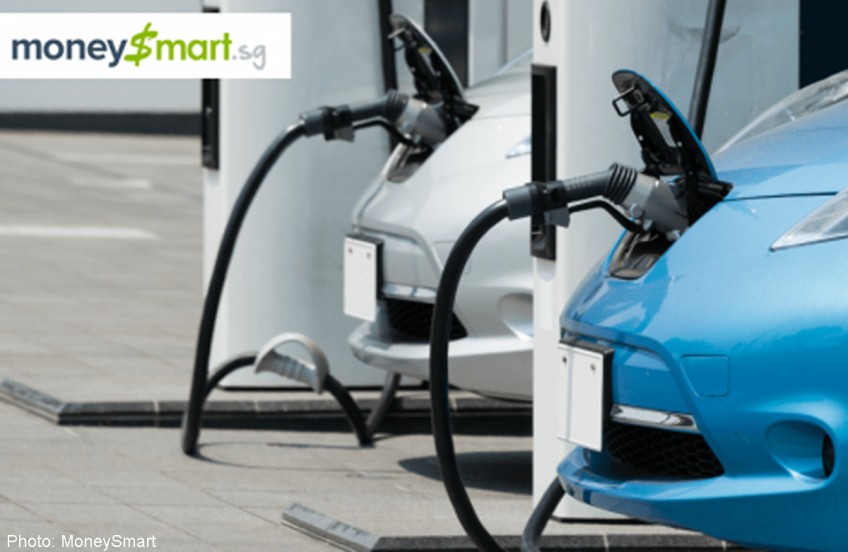4 reasons why electric cars are still not the solution to expensive petrol cars in Singapore


We pay so much in petrol each month that entire credit cards have been dedicated to making these monthly extractions less painful. So the idea of buying an electric car might seem like a good one. Imagine never ever having to pump petrol ever again. Plus you get to save the environment without having to actually cycle under the hot sun! Economical and ethical, right?
Well, there are a few good reasons you don't see too many electric cars merrily zipping about Singapore's roads. Here they are.
1. An electric car costs much more than a petrol-run one
Unfortunately, it all boils down to dollars and cents. While electric cars will certain cost you a lot less to maintain and run, the upfront cost scares people away.
The BMW i3 Electric costs $236,800. That's a crazy $70,000 more than the BMW 2 Series Active Tourer. At that price, you could get a much more luxurious BMW 4 Series Gran Coupe.
In, fact, a recent newspaper report revealed that the open market value of the electric car is about three times the cost of a petrol car.
Of course, your fuel costs will be much reduced, and elsewhere on MoneySmart we found out that you could end up saving about $3,566 a year on petrol alone, since it only costs $5 to charge an electric car.
You also get to save about $500 a year on maintenance costs.
Still, even if you drive the car for 10 years, the entire length of its COE, it would still be cheaper to just buy a petrol car to begin with, especially since the range of budget petrol models available is much wider and there are far cheaper models.
2. Smaller range of models
Now, we've already established that electric cars are relatively expensive, costing more than an equivalent petrol car in the long run despite petrol and maintenance savings.
That leaves Singaporeans with few incentives to purchase one, except for concern about the environment which, er let's face it, isn't too widespread.
But I've realised from trying to sell my own vehicle on the second hand market that many buyers just want a ride that looks cool.
Now, if there were some really swish looking electric cars out there, or if electric cars were featured in the Fast & Furious franchise, you can bet that there would be Singaporeans out there driving them.
3. Rebates aren't generous enough
As a driver of a hybrid or electric car, you get to enjoy the NEA's Green Vehicle Rebate, which will refund you 40 per cent of your car registration tax.
The Carbon-Emissions-based Vehicle Scheme also lets you claim rebates of between $5,000 to $20,000 which can be used to offset your ARF.
Still, it is unlikely such rebates will encourage car buyers to make the switch unless it can bring the cost of owning an electric car to below that of owning an equivalent petrol car.
4. Perceived inconvenience
Most Singaporeans are pretty clueless about electric cars. A lot of people think you need to go to a natural gas station, of which there are only four on the whole island.
There's actually a ton of electric charging stations all over Singapore, and it's almost as easy to find one as it is to find a petrol kiosk.
Granted, these aren't as widespread as they ought to be, and if you live in Woodlands, Sembawang, Sengkang or Punggol you're going to curse the high heavens if you find your car out of battery close to home.
But in general, charging stations are easy to find and because so few people have electric cars you never have to queue for them.
It looks like Bosch eMobility Services, the company that owns the charging stations, needs to start a Facebook page or something, because nobody knows they exist.
What Needs To Be Done
As we've said before, Singapore is the perfect testbed for a city that wants to incorporate the infrastructure for a wider-spread adoption of electric cars - we're compact, well built up, and have people who are sick of paying over the top for both petrol and car ownership.
But what are some things that need to happen in order for an increased adoption? The chicken-and-egg problem to a certain degree is that without any existing infrastructure in terms of charging stations that are as accessible and numerous as petrol stations, people are more likely to maintain that perceived inconvenience of owning a car.
Let's just say that not everyone in Singapore might own a fancy piece of land that can house its own charging station.
The other issue is of course the absolute cost of the car. But without the necessary amount of people willing to buy electric cars, it's going to be rather hard for car manufacturers to price them anywhere below petrol cars.
Is this something the Government can change? Perhaps. A concerted push to work with companies to install more stations and also at the same time incentivise both car buyers and sellers to adopt electric cars could have an overall positive effect on the market. While that's going to still be some time from now, it's certainly a nice picture to look forward to.